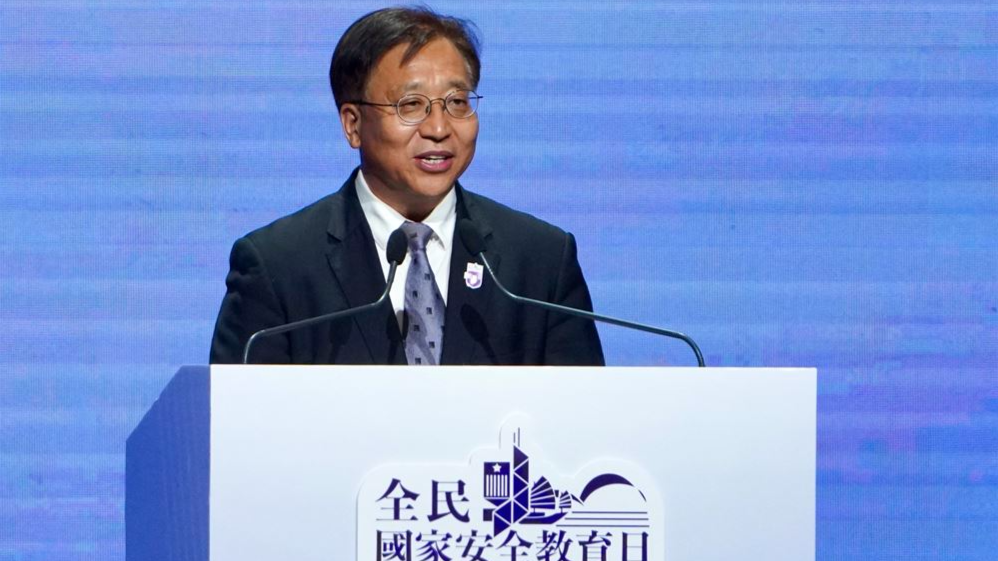
China is committed to developing a stable, healthy and sustainable relationship with the United States, and Hong Kong continues to provide a unique platform for connecting the mainland and the US.
Cui Jianchun, commissioner of China’s Foreign Ministry in the Hong Kong Special Administrative Region, made the remarks on Thursday at China Conference 2025, organized by the American Chamber of Commerce in Hong Kong.
The conference took place at the HKEX Connect Hall on Thursday as the world’s two greatest economies are entangled in a tit-for-tat tariff levy, sparked by US President Donald Trump’s sweeping new tariffs announcement on April 2.
READ MORE: Hong Kong bourse shines as US-listed Chinese firms may return home
“I think history tells us that China and the US gain from cooperation and lose from confrontation. China’s commitment to develop a stable, healthy and sustainable relationship with the US remains unchanged,” Cui said at the opening remark of the conference.
“Our principle for managing China-US relations through mutual respect, peaceful coexistence, and cooperation remains unchanged,” he added.
Other speakers at the conference said the world is heralding a new era and has to guard against any miscalculation risk.
Benjamin Kostrzewa, a partner at global law firm Hogan Lovells, said, “We are currently in a period of great disorder whereas the global trading system that has guided us since World War II is over, with all these ‘reciprocal tariffs’ in place. We are now in a much more transactional position.
“We do not know how long this period of disorder will going to last. But we know these are incredibly challenging negotiations, and subject to a very complex international environment and domestic politics.”
Kurt Campbell, a former US deputy secretary of state under the Biden administration and the chairman of the Asia Group, said, “The biggest risk for China and the US are that inadvertent miscalculation, whether military or trade, suddenly begins to escalate, and there are not appropriate lines of communication or channels that can mediate some of those interactions.”
Amid the potential of risk miscalculation, government officials and business leaders from the mainland and the US highlighted Hong Kong’s unique platform role for linking up the world’s two greatest economies.
“Hong Kong is a very important platform for promoting US-Chinese mainland mutual understanding and as an open space for mainland and US experts to come together. The US hopes Hong Kong can continue to play this unique role,” Gregory May, US consul general in Hong Kong and Macao, said at the conference.
AmCham Chairman David Butts added: “As US-Chinese mainland relations find themselves in uncertain times, Hong Kong stands at a crossroads. Companies in the mainland are continuously adjusting strategies and resetting plans. We have seen facts, ideas and analysis to help us navigate this turbulence. I am eternally positive and optimistic because opportunities grow from difficulties.”
READ MORE: Chan: HK sees surge in foreign investment amid US tariff uncertainty
Cui said Hong Kong’s special status stems from the country’s faithful and progressive implementation of “one country, two systems”, the national strategies such as the Guangdong-Hong Kong-Macao Greater Bay Area (GBA), and the city’s predictable business environment.
He also said the Chinese economy is seeing a sustained recovery with the three positive signals of expanding domestic economic circulation: development of a robust innovation momentum with the development of qualitative productive forces and a modern industrial system; and an actively expanding high level of opening-up, with continued easing market access for foreign investment.
“We truly hope you will continue to stay optimistic about the Chinese mainland, invest more in Hong Kong, and inject a great impetus to stable, healthy and sustainable China-US relationship,” Cui said.


